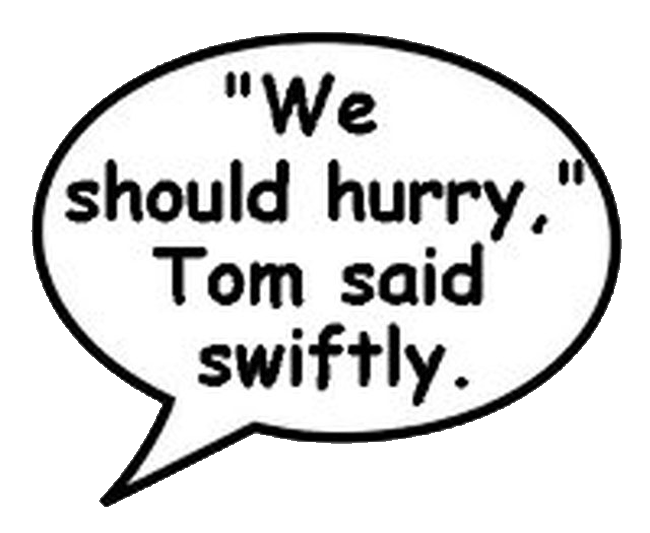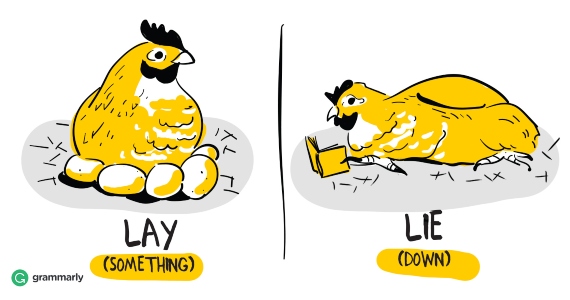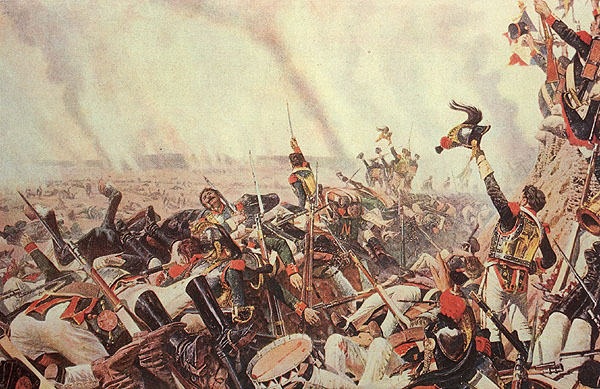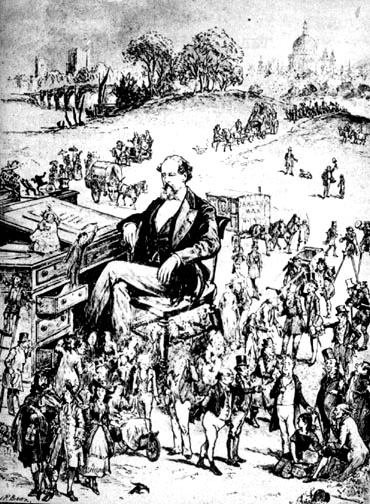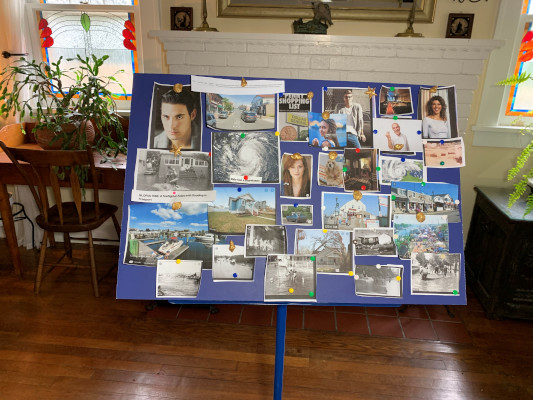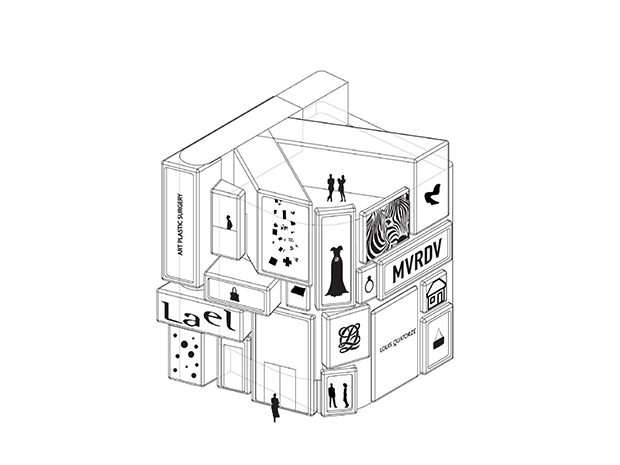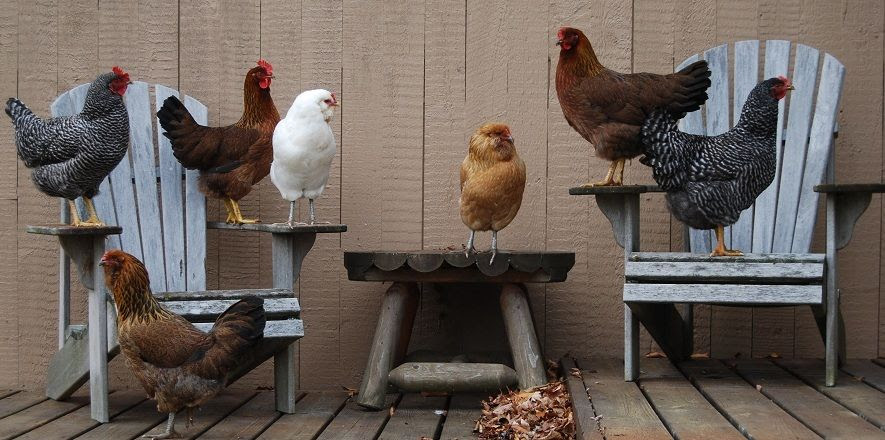
NYU Novel Writing
Fall 2024 WRIT1-CE9357 Online
Farewell and good luck with your novels!
This web page will be up until February 1, 2025 so you can read materials you missed and copy urls and .pdfs.
NOVEL WRITING
WRIT1-CE9357 Novel Writing (Fall 2023)
9-18/2024 - 11/20/2024
10 Wednesdays 6:30 p.m. to 8:50 p.m.
Synchronous online by Zoom
Instructor: Meredith Sue Willis (She, her, hers etc.)
E-mail: meredithsuewillis@gmail.comUpdated 11-20-24
Please note that this site changes often during the semester based on what I perceive to be the needs of the students. You should check for updates at least once a week.
Current Class
Two new things from Jeff Rudell:
MasterClass on getting rid of "filter" phrases
For the final two sessions, 11-13-24 and 11-20-24, I will open the class Zoom early in case anyone wants to drop by to talk. I'll open around 6:10 PM. If you want to chat, just come early. It won't necessarily be a private conversation, but I'm also available by email for specific questions.
From the marketing discussion 11-6-24
Check our Estelle Erasmus's podcasts at Freelance Writing Direct: Conversations with Authors, Journalists, Agents, Novelists, Memoirists, Niche Writers, Agents, and More!
In Particular, here's Estelle's interview of Jane Friedman and her Writers Digest piece about launching your book. More from Estelle: "Gett a subscription to Publisher's Marketplace to look into agents. Agents are on social media. Follow them on X or instagram or Threads." She also recommends the writers conference whree she got her agent: The Atlanta Writer's Conference. They do agent/writer meetings.
MSW says: "Estelle has a tremendous amount of information to share on her various social media outlets. Also Danny in his "Adventures in the Written Word"
Phil Berroll says, "When you start submitting, try www.querytracker.net . It is very good for organizing/keeping track of your queries and responses."
Karen Flyer says, "If anyone wants to self-published, I used Xlibris for my memoir. I sampled a bunch and found their product to be very good, similar to a traditionally published book."
Dialog. Scene. Conflict. Story.
Current Class
Presentation/Critique Schedule Pick a date to present your work for class critique.
Writing Assignment Due 11-20-24
Reading Assignments Due 11-20-24
Overview of Weekly Topics
Current Week's Class Plan is posted by Noon of Class Day
Optional Text for this Course: Ten Strategies to Write Your Novel by Meredith Sue Willis. This text is not required. It is, however, available at the NYU Bookstore, from the publisher, and from all the usual online suspects including Bookshop.org.
Some Novelists Living and Dead I've Been Reading Lately

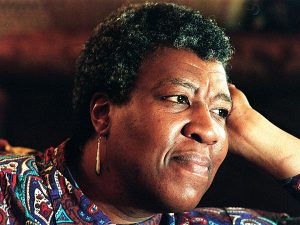

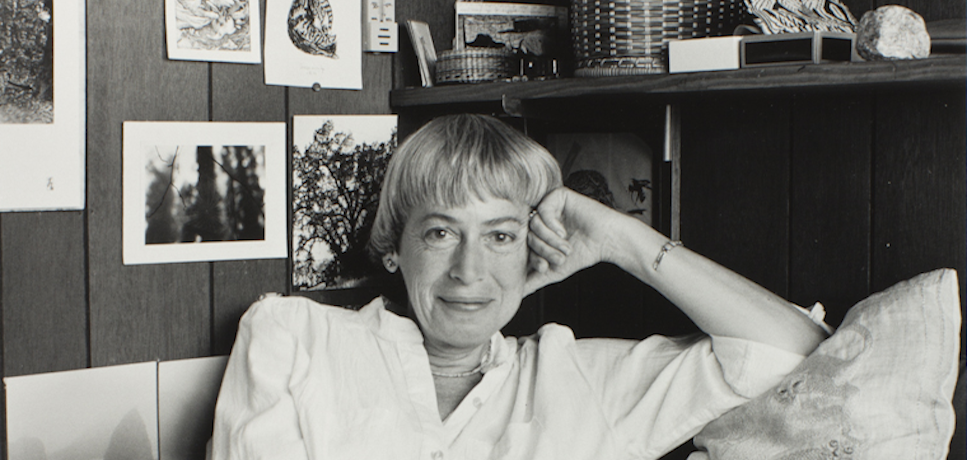




Barbara Kingsolver;Octavia Butler; Gore Vidal; Ursula LeGuin; Primo Levi; Jessamyn Ward; Michael Connelly; Brandon Taylor.
A Few Optional Readings
Cynthia Swanson on going from best-selling commercial author to self-publishing.
Dialogue punctuation: Six "unbreakable" rules for dialogue punctuation.
Pros and Cons of Present Tense
Susan DeFreitas on Character Arc
Article in Psychology Today that discusses some fiction writing techniques in light of neurology. It's a refreshingly different way of looking at things. Author Laura Otis says, "Deciding which confrontations readers should experience in real time and which should be quickly summarized goes to the heart of the writing process."
Finding your novel's clock: from Literary Hub.
Writing ideas from Kurt Vonnegut collected by Suzanne McConnell in her book on Vonnegut.
Samples of MSW's fiction online:
"The Sweetest Man Who Ever Lived," Cold Mountain Review 2023
From novel Their Houses
"Fan Fiction: Paradise Lost," Maryland Literary Review
"Grandma Shiksa," Persimmon Tree
"Feral Grandmothers: Little Red's," Persimmon Tree
Outline/Overview of Probably Weekly Topics (Subject to change)
Session 1. 9-18-24 Lots of basic Business, vocabulary for talking about novels, the importance of the senses and description for writer and reader.
Session 2. 9-25 Dialogue and Scene One: Writing Vivid Dialogue; Dramatize versus Summarize. Presentation of Student Work for Critique
Session 3. 10-2 Dialogue and Scene Two: Presentation of Student Work for Critique
Session 4. 10-9 Point of View and Tense for telling your story. Presentation of Student Work for Critique
Session 5. 10-16 Arc of Character. Monologue (inner speech) Presentation of Student Work for Critique.
Session 6. 10-23 Structure One: Thinking About How to Organize the Material You Draft.
Presentation of Student Work for Critique
Session 7. 10-30 Structure Two: When, How, & If to Outline. Presentation of Student Work for Critique
Session 8. 11-6 What Novels Do Better than Movies and What Novelists Can Learn from Film. Physical Action, Logistics; the "Clock" of the story.
Short Presentation on What To Do Once Your Novel is Finished.
Presentation of Student Work for Critique
Session 9. 11-13 Making your Novel Better One: Diction, Line Editing, and Fine Tuning.
Presentation of Student Work for Critique
Session 10. 11-20 Makiing Your Novel Better Two: Macro Revision for
Presentation of Student Work for Critique.
Final Session--What's next--Farewells.
Session 1
9-18-23
Why We Use Concrete Language;
How to Talk
about Novels
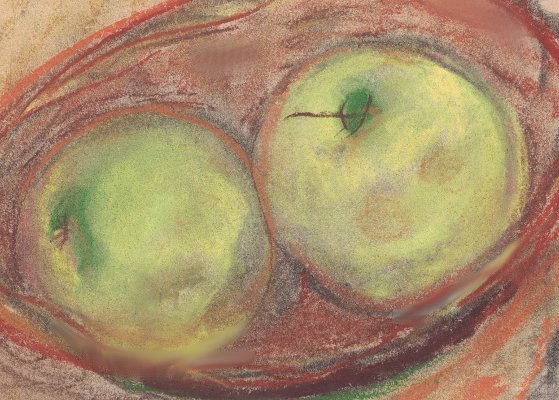
And they have and odor, crunch sound. feel round and shiny, and taste sweet.
Reading Assignments Due 9-18-24:
Getting the right spacing between paragraphs in Word
Look over these copy editor's marks for times when you want to do hand written mark-ups--or understand the ones MSW puts on your pages!.
A piece from The Guardian on using adverbs
(Optional) In Ten Strategies to Write Your Novel, read "Strategy 1: Separate Process and Product" or this excerpt from the book :Click on the "Read an Excerpt" at this link link.
Writing Assignment Due 9-18-2
The first page--a sample of your writing--from your novel. If you haven't written it yet, this is an essential first assigment.. Turn this in by midnight of class night: 9-18-24. It will be distributed to all members of the class as a quick means of gettng a sense of your work. This will not be critiqued or marked up.
I. General Business
A lot of business today--apologies to those who have taken this course before.
All writing and presentation selections should be from the novel you're working on.
During the course, you may bring up-to 30 manuscript pages for critique (some of these pages will be for the whole group, some only for the teacher). Assignments are optional and go only to MSW. Anything you turn in to MSW, however, counts towards the total of 30 pages to be reviewed during the semester. See more below.
- May I share the email list? (You'll want to get things from each other). Also, unless you tell me otherwise, I'll put you on my personal list for a free newsletter and announcements about my teaching and work.
- Please be prepared to discuss the work of classmates when they present.
- This class welcomes beginning novelists as well as writers who are well-underway on a novel and need further discussion and stimulation to continue or restart. For those with longer or revised manuscripts, this course may be repeated. We will cover a lot of basics fast, beginning with a survey of common terms for discussing novels and a look at novel structure in general. If you feel you need more of the basic terminology and ideas, please take a look at the teacher's book, Ten Strategies to Write Your Novel.
- This syllabus will be updated regularly online, so please check this web page at least once a week. Access to the website is also available from MSW's home page. Look at the top left.
- You will receive a grade for this course unless you request a NonEvaluative mark. For the Non-Evaluative, please see the attached form. A copy of this request must be filed with the department. Send it by e-mail to . No letter grade will be given below a B. To earn a B, you must attend regularly, complete 30 pages to the professor's satisfaction plus present work for critiquing by the class at least once. To earn an A, you must attend regularly, complete the 30 pages, present work for critiquing by the class at least once, show evidence of having done any outside reading, plus participate in class discussions.
- It should be noted that all NYU policies on academic integrity, i.e., plagiarism, are fully in effect in this course. For various NYU policies, click here.
Disclaimer: Syllabus is subject to change due to current events, guest speaker schedule changes, and/or level and interests of students.
No-evaluative Grade Information: if you don't want a grade, you must follow these instructions.
Take a look at weekly topics.
Sign up for class critiques
Pick a session to present 5-10 pages to the class. Everyone should read the material BEFORE class (it will not be read aloud), and the presenter needs to e-mail .doc files to everyone by Sunday night of the class you are presenting on.
Send MSW by chat or e-mail: your snail mail address; names you want to be called; corrections to e-mail, corrections to page or broken links or other.
Material you send in for responses ("Homework"). There are three kinds:
1. The weekly assignments should be @ 2-3 pages long. They are not required, but are a good way to move your novel forward. These pages are sent only to MSW. They are due on the day of class (thus, the "Writing Assignments due" for Session 2 are due any time September 25, 2024 (before or after class). If they don't arrive that day, there is no guarantee they will be returned by the next session. You may send longer passages (still adding up in total to 30 pp), but please let MSW know your plan so she doesn't get swamped at the end!
2. Substitutions: especially for people taking this class again, or who have an in-process novel--you may send any pages you want to the instructor for feedback. These pages are sent only to MSW. They are also due on the day of class. If they don't arrive that day, there is no guarantee they will be returned by the next session.
3. Presentation pieces for critiquing (as short as you'd like, but no more than 10 pp. double spaced, 1 inch margins, roughly comparable to 12 pt. New Times Roman Type face) are sent to the entire class. These presentation pieces are to to arrive in people's e-mail in boxes by Sunday night before the presentation.
VIP: the total pages you may turn in to MSW cannot be more than 30 pp. This includes work to be critiqued by the whole class and assignments sent only to MSW. When there is work to critique, be prepared to discuss it by the time the class member presents. Please provide written responses. You don't have to do line editing (unless you like to), but you should send at least a paragraph of response.
II. Things We Do During Class Sessions:
- Some discussions of homework readings and other topics.Not everything assigned to read will be discussed. This is partially a self-taught class.
- Critique sessions of class members' novel sections.
- Mini-lectures (MSW talks--not too lopng)
- Discussion (as much as possible). Send questions if you have any.
- In-class writing
- For general topics by week, click here.
III. Zoom guidelines
- Please have your camera turned on.
-- Put yourself on mute when you're not talking so we don't have to hear your puppy, your partner in the kitchen, etc. The mute button is at lower left of the Zoom screen.
-- Raise your physical hand if you want to speak. (Emojiis tend to set MSW's teeth on edge).
-- Speak one at a time--in practice, this means waiting for the instructor to call on you.
-- Try to be succinct.
-- Listen and respect each other's ideas. We are writing different kinds of novels, and if possible, try to make suggestions based on helping each other write the best novel of the type we are writing.
-- Use the chat function for procedural notes to the instructor ( you got a text from a classmate who can't get in; the name of a book you couldn't think of and wanted to share....)
-- Apologies in advance: I may have to interrupt you or cut you off. We try for equal time for each person, but I also have an ambitious plan for what to cover.
-- Technical note for Mac Users on Zoom: To view screen share in Zoom at full screen, see the top drop down menu and set to "100%"
IV. Very brief go-round of introductions
Say up to two sentences about yourself: the name you want to be called, one thing about you (what do you like to read? Do you have a little expertise on something that might help the rest of us? were you a volunteer EMT in a past life?). Also, PLEASE NO APOLOGIES FOR HOW MUCH OR HOW LITTLE YOU'VE WRITTEN ON THIS NOVEL! In fact, let's not tell the status of our novels tonight at all.
V. Write
Using Timed Writing, write a description (not narrated but rather focusing on what can be observed with the senses--especially those other than sight) of a place in your novel. This can be indoors, outdoors, private or public.
[In Timed writing, you write steadily for the given time. Write slowly but steadily. If you get stuck, repeat a word till you're unstuck. But try to keep the words coming.]
VI. Share a couple?
VII. Separating Process and Product
It is essential to know that what you write first is rarely the same as the beginning of your novel. Preparing the manuscript (including a passage for critique) demands different thinking from creating new material.
If you haven't, don't forget to read this excerpt from Ten Strategies:Click on "Read an Excerpt." If you have the book, you can read the full version In Ten Strategies to Write Your Novel, "Strategy 1: Separate Process and Product.")
VIII. Extremely Mini-Lecture on the uses of concrete language, which often means description
Concrete description brings your reader into the story. It also brings you the writer into the story. Concrete means using the senses whenever possible. Like the apples above, we best communicate what is in our minds by sharing the lowest common denominator: red, warm, smooth, crisp, sweet, juicy. Sense details is not the only thing in fiction writing, but it is essential for those of us writers (novelists and other fiction writers!) who aren't illustrating their work or depending on costume designers and actors to give the timbre of the voice, the fabric and folds of the cloak.
Drafting lots of rich description will help you see your work more completely and clearly and may even give you ideas for new scenes, new characters, new depth! Over-write as you make your first draft. This is how description is vital for the process of writing as well as the product a reader encounters.
In your final product, get rid of most of the description you drafted. Make your descriptions as concise as possible, retaining only the very best details. See "The Lady Sheriff."
Finally, don't stick with visual detail only. The intimate senses-- touch, smell -- are extremely evocative, and not just in sex scenes. Here are two brief passages (mostly visual) from assignment for today. Even though they are both focused in their different ways on action, the concrete description makes them work:
-- At approximately 11:30 PM local time on Monday July 24th, two stealth helicopters entered the airspace above Brussels. Their dark metal armor barely discernible from the night sky. Below the lights of the capital city bathed the streets and squares in a dull amber light. The few people left in the business district paid no mind to the choppers.
---Jenny could picture her mother's smiling face as her brothers chased each other around the yard. Her mother turned and waved at her. Tears clouded her vision as her body shook. Her knuckles turned white as she tightened her grip, and she closed her eyes. Tears slid down her cheeks.
Here are a couple of descriptions of people that get their strength from senses other than sight.
IX BREAK
X.
A few important terms and concepts-- a common vocabulary:
For thinking and talking: Types of novels
This class is roughly equal parts Big Picture stuff (Macro) and small details of description and house keep9ng (Micro).
More terms for Novel Writing
Common vocabulary--Process versus product, pacing, when to dramatize, when to elide. Essential importance of Point of View in all fiction. Scene and summary. What is Scene? Why is it important? The building block of novels. But at the heart is concrete details.Process versus product, pacing, when to dramatize, when to elide.
You'll especially need the terms for thinking about your own novel and for critiquing others' novels.
XI. SCHEDULE PRESENTATIONS FOR CRITIQUE.
This is for many people the most important part of a course like this one.
PLEASE GET WORK TO WHOLE CLASS BY SUNDAY NIGHT before the Wednesday of class.
I need two for next week: Prize is to get first dibs on second time. Please send me by email before the next class your first choice for your first presentation.
Brief discussion: How do we talk about ("critique") one another's novels?
Support groups, no response groups/classes.
What do you find useful? Not useful?
For me, it's always How to make this novel (scene, passage) the best it can be at what it wants to be.
Here's a sheet to help people critique your passage. You might want to print out--use as a reference.
XII. a Macro Exercise
Macro exercise about the novel you are planning/engaged in. Your novel--write about it, talk about it.
Answer these questions about your novel:
(This is a structuring exercise, to get a grip on the novel-as-a-whole)
– Genre (Fiction autobiography? Mystery? Romance? See "Types of Novels.")
– How much I've done so far– how long will it be?
– Who will be the typical reader? Sketch in words the typical reader. – What is
reader doing? Where are they sitting?
– Point of view-how is the story told?
– One important conflictConflict is often thought of as a person against themself; or, a person against other individuals; or, a person against society; or even a person against natural forces (The Martian).
– Some books I think people would like who would like my book– the way Barnes & Noble rders has a shelf of "If you like this, try this one."
XIII. Homework and readings for 9-25-24 next week
Writing assignments:
1. Write down 5 novels you love/admire/envy/emulate (In other words, feel strongly about). Write one title, if you'd like, that you really dislke.
2. Write a physical description of a character. Focus first on what can be observed with the senses--especially those other than sight.. Things to consider: try to make it psychologically accurate--that is, not every possible detail, but maybe an over view first, or maybe a person entering the space. Notice clothing, posture, skin color, but also odor of perfume or cigars, etc. Who is telling this? A first person narrator? The main character from 20 years in the future?
NOTE: the writing assignment is due by midnight of the week it's due, in this case, Wednesday, September 25, 2024. It will be returned to you via email by the session after it's received.
Reading Assignments
Read the first pages of the other students' novels. This is not for critique just for further introduction. What gen
re is the person writing? Is it heavy on description? Lots of dialogue? How is it told?
Do you need ideas for starting your novel? Check out MSW's article online from The Writer: "How to Get a Novel Started."
Advice for Writers from Novelists
Using the latest technology in your novel
How a story was submitted forty times over ten years, and finally..
(Optional) Two chapters in Ten Strategies: "Strategy 1: Separate Process and Product " and "Strategy 2: Taste It, Touch It Smell It..."
Session 2
9-25-23Dialogue & Scene I
Dramatize versus Summarize
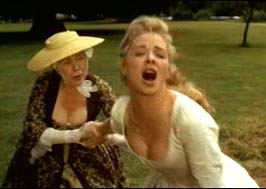
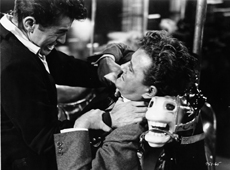
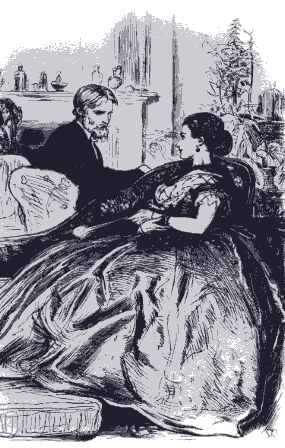
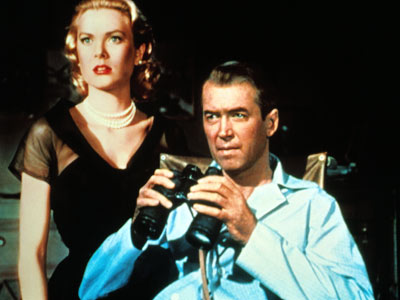
Scenes from novels in a different medium: Tom Jones by Henry Fielding; Strangers on a Train (Hitchcock movie from Patricia Highsmith novel));
Trollope's Phineas Finn political novels; Rear Window (more Hitchcock from a story by Crornell Woolrich)
Presentation/Critique Schedule
For an overview of weekly topics, click here.
Homework and readings due 9-25-24
Writing assignments:
1. Write down 5 novels you love/admire/envy/emulate (In other words, feel strongly about). Write one title, if you'd like, that you really dislke.
2. Write a physical description of a character. Focus first on what can be observed with the senses--especially those other than sight.. Things to consider: try to make it psychologically accurate--that is, not every possible detail, but maybe an over view first, or maybe a person entering the space. Notice clothing, posture, skin color, but also odor of perfume or cigars, etc. Who is telling this? A first person narrator? The main character from 20 years in the future?
NOTE: the writing assignment is due by midnight of the week it's due, in this case, Wednesday, September 25, 2024. It will be returned to you via email by the session after it's received.
Reading Assignments
Read the first pages of the other students' novels. This is not for critique -- just for further introduction. What genre is the person writing? Is it heavy on description? Lots of dialogue? How is it told?
Read the pieces for critique arriving by Sunday night from Jake Rakov and Lauren JenkinsDo you need ideas for starting your novel? Check out MSW's article online from The Writer: "How to Get a Novel Started."
Advice for Writers from Novelists
Using the latest technology in your novel
How a story was submitted forty times over ten years, and finally..
(Optional) Two chapters in Ten Strategies: "Strategy 1: Separate Process and Product " and "Strategy 2: Taste It, Touch It Smell It..."
I. Business
Questions about business? Who is confused? Can I help?
Are you understanding that the homework due in today won't be critiqued and returned till next week. The responses to the critique pieces go to the writer. Some of you are copying me, and that's great but not required.
- Total of thirty pages to me, includes presentations and homeworks--you can substitute; you can send one longer piece if you'r rather.
- SIGN UP TO PRESENT! 3 or 4 people haven't yet. I'm about to start offering second slots, but I'd like those three people to get theirs first. By tomorrow, please.
- Formatting: Double space your homework and presentation pieces (for readability) Please give everything page numbers. Make Word give you narrative style, NOT block paragraphs. That is, indented paragraphs and no extra spaces between paragraphs unless you want them to indicate time passing or some other conscious stylistic element. See examples here:
Conventional Narrative formatting: From "The Two Lindas."
Settng Word to get rid of the block paragraphing -- Also note that conventional narrative formatting uses indented paragraphs.
- Presenter work due Sunday night . Send to whole class.
- Homeworks due by midnight of class day--send only to MSW.
- Any more questions at this point?
II. Leftover from Last Week
A few important terms and concepts-- a common vocabulary:
For thinking and talking: Types of novels
This class is roughly equal parts Big Picture stuff (Macro) and small details of description and house keep9ng (Micro).
More common terms for Novel Writing
You'll especially need the terms for thinking about your own novel and for talking about the novelsl of others.
A Few Notes on Time (mini-mini lecture)
Time frame/span: I call the " present time of the story" for your novel the farthest forward, most recent, part of your story. This is a process issue. The reader doesn't care.
The "present time of the story" could be the first person narrator at the age of 45 looking back at what happened to her when she was 22. That is, this is not back story, not flashbacks, etc., but the moment from which the narrator is telling the story.
The present time of James Joyce's novelistic long story "The Dead" is the 5 or 6 hours of a party followed by a carriage ride to a hotel to sleep--plus a a lot of dips into memory, flashback, and more.
The present time in your novel might be the instant a man stands before a firing squad while the whole novel consists of his life flashing before his eyes. The present time could be the timeless Godseye view of the omniscient narrator telling from a great distance (a long shot) about the bombing of a city followed by alternating passages close to various characters and how they experiences the events.
This is useful as you structure your novel: being aware of "present time of the story" and keeping a chronology of events can help you keep organized.
III. The first pages you turned in.
These are to be used as a way to get a quick idea of the kind of novel we're going to be reading: Jake's, which we'll be looking at latere, is clearly an omnsicient novel, with lots of action, probably many characters.
Note that he sticks in one POV at a time.Go over quickly--emphasis on POV and dialogue
IV. Critiquing
I gave you this to consider: Points for novel critiquing. Some of you plunged write in wth "comments" via Word. I usually go old schooll and write on the page and send you a scan.
But what are things you have found especially fruitful in critique sessions?
Not so much?
V. Presenter One
Lauren
VI. WRITE:
Today's general topic is dialogue. Some of us are naturals at it, others, not. But one approach is to concentrate on the words said first, separating out the other material, the enrichment, as it were.
1. Write a short conversaton from your novel with a conflict in it, as if it had been recorded audio only: Write just the words said, without even the names of the speakers.
2. Go over it, and add any/all of these or other things:
Setting
Action!
Narration
Descriptions of people, objects, anything
Tags (she said, he said, they murmured)
modifiers to the tags
inner monologue3.Go back and cut everything that isn't interesting and/or slows it down.
VII. Share? Responses
This will be writing homework for next week.
VIII. BREAK
IX. Mini lecture on dialogue/scene
We are talking today about how dialogue works. We all know what it is. BUT for novel writing: Dialogue is where the drama is-- conflict, confrontation, love!
It is also the closest thing to "real" time as anything in prose narrative. A sword thrust in fiction isn't much like one in life or movies. But dialogue is.
On the other hand, we have to make an illusion. The transcription of a real dialogue too long and boring. Our job is to create the illusion of people ;speaking.
- Dialogue Tags Try to minimize drawing attention to them for momentum and pacing of the story. Check out this article, if you haven't yet: Avoid Creative Dialogue Tag Syndrome."
- Using accents & foreign languages in novels (just a couple of notes)
- A little dialogue and a lot of "enriching" material: from Yonnondio
X. Presenter Two
Jake Rakov
XI. Assignments For next week:
Writing Assignments:
Finish the in-class dialogue.
1. Write a short conversaton from your novel with a conflict in it, as if it had been recorded audio only: Write just the woreds said, without even the names of the speakers.
2. Go over it, and add any/all of these:
Setting
Descriptions of people, objects, anything
Tags (she said, he said, they murmured)
modifiers to the tagsinner monologue3.Go back and cut everything that isn't interesting.
Or, as always, substitute a passage from your novel you want feedback on.
Reading Assignments (some of this is material referred to in class 9-25-24):
Student presentations coming by e-mail attachments.
Short readings on dialogue and scene: : Dialogue Tags ; Types of Discourse; and " Dialogue: The Spine of Fiction." (article by MSW about dialogue online).
- Check out these Types of Discourse: all useful and common in novels and other conventional fiction. Knowing their names isn't particularly important.
- A good example of a scene focused on dialogue: note that this one does NOT use conventional dialog punctuation!
- Scene and summary. What is Scene? Why is it important? The building block of novels. Some ways of telling a story– central one is scene. Please be sure and read the things online about scene, but in a nutshell, it's the unit of the novel–not the only thing, and some novels it isn't even the main thing, but always crucial for drama, for the reader visualizing the action.
- Read possibly the greatest summary in twentieth century literature--told not shown!--from Virginia Woolf's To The Lighthouse, the death of Mrs. Ramsay. The bracketed "scene" is as Woolf wrote it. (optional)
- Dialect Issues: Ed Davis's article in the Writers Digest's Blog about writing dialect. (optional)
Ten Strategies, "Strategy 5: Master Dialogue and Scene" (optional)
An eleven minute recorded mini-lecture by me on Scene (optional)
Session 3
10-2-24Scene & Dialogue II
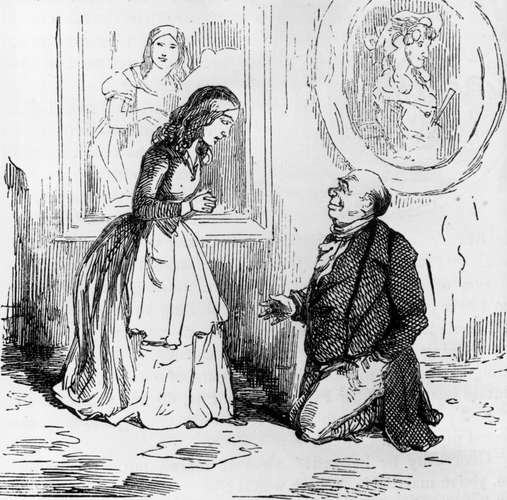

Illustration from Thackery's Vanity Fair and still from 1953 movie From Here to Eternity
Writing Assignments:
Finish the in-class dialogue.
1. Write a short conversaton from your novel with a conflict in it, as if it had been recorded audio only: Write just the woreds said, without even the names of the speakers.
2. Go over it, and add any/all of these:
Setting
Descriptions of people, objects, anything
Tags (she said, he said, they murmured)
modifiers to the tagsinner monologue3.Go back and cut everything that isn't interesting.
Or, as always, substitute a passage from your novel you want feedback on.
Reading Assignments (some of this is material referred to in class 9-25-24):
Student presentations coming by e-mail attachments.
Short readings on dialogue and scene: : Dialogue Tags ; Types of Discourse; and " Dialogue: The Spine of Fiction." (article by MSW about dialogue online).
- Check out these Types of Discourse: all useful and common in novels and other conventional fiction. Knowing their names isn't particularly important.
- A good example of a scene focused on dialogue: note that this one does NOT use conventional dialog punctuation!
- Scene and summary. What is Scene? Why is it important? The building block of novels. Some ways of telling a story– central one is scene. Please be sure and read the things online about scene, but in a nutshell, it's the unit of the novel–not the only thing, and some novels it isn't even the main thing, but always crucial for drama, for the reader visualizing the action.
- Read possibly the greatest summary in twentieth century literature--told not shown!--from Virginia Woolf's To The Lighthouse, the death of Mrs. Ramsay. The bracketed "scene" is as Woolf wrote it. (optional)
- Dialect Issues: Ed Davis's article in the Writers Digest's Blog about writing dialect. (optional)
Ten Strategies, "Strategy 5: Master Dialogue and Scene" (optional)
An eleven minute recorded mini-lecture by me on Scene (optional)
I. Business
- People are asking if your critiques of other students come to me. Not required, but you may. Don't forget--for anyone hand writing their remarks (and to read mine) look at copy editor's marks.
- You may now schedule a second presentation. Jake and Lauren get first dibs. Please look at the presentation schedule below.
- Total of thirty pages to me, includes presentations and homeworks--you can substitute; you can send one longer piece if you'r rather.
- At least three people are doing big chunks (thirty pp at once). If you are, please give me an idea when it will be coming.
- Non-evaluative Grade Information: if you don't want a grade, you must follow these instructions. Or just get in touch with Kenneth French at kenneth.french@nyu.edu Who wants a Non-evaluative grade?
- Please remember in all homework and presentation pieces: Page numbers, double space, 1" margins, standard narrative format, also your name on the first page!
- Five Favorite Novels- people's favorites!
- MSW Pet Peeve
Mini-lesson on Lie versus Lay
– Today I lie in my bed; yesterday, I lay in my bed. In the past, I have lain in bed till noon.
– Right now, I lay the paintbrush on the table, and the paintbrush just lies there. But when I laid it down yesterday, it rolled off the table and lay on the floor.
Confused? Paintbrushes "lie" on the table or floor, but you "lay" the paintbrush down on the table. Then of course, it just "lies" there.
The really confusing part is the past tenses: "I laid the brush down beside the paints, and it just lay there." One verb has an object; one doesn't. Many, many people do this in a grammatically incorrect way.
For those of you who hate grammar and don't really care, take heart: there is an excellent chance that in another ten or twenty years, usage will have changed.
One current dictionary (Random House Unabridged Second Edition) explains, "...forms of LAY are commonly heard in senses normally associated with LIE. In edited written English, [however,] such uses of LAY are rare and are usually considered nonstandard."
II. Hermione Brice on concept of Sensitivity Reading
III. WRITE: A Macro Exercise-- we touched on this, but I haven't asked you yet to send it to me or share it. (5 minutes scribbled down. Send it to me as part of the homework. It helps me keep a sense of the whole work).
– The genre or type of your novel
– The length you guess it will be in the end ( 150 manuscript pages? 300?)
– How much you've actually written
– Point of view-how is the story told?
– One important conflictConflict is often thought of as a person against themself; or, a person against other individuals; or, a person against society; or even a person against natural forces (The Martian).
-- My strengths as a writer
-- My challenges in getting it written
IV. Go round on challenges in getting this novel written.
V. Presenter One:
Jeffrey
VI. WRITE:
Scribble down three important scenes that will happen (or have happened) in your novel. Write a new version if, say, you have a draft, or name them hypothetically: this is one way of moving forward as you draft.
Choose one and start writing.
VII: Break
VIII. Presenter Two:
Hermione
IX. Mini lecture on Scene
Dialect is the dramatic heart of novels, but scene is the building block, the essential structure of a novel.
In common speech, "scene" is the place where an action or event occurs, such as the scene of the crime. It is also commonly used to refer to a public display of passion or temper as in, "She tried not to make a scene." It is also a sphere of activity, as when we speak of observing the political scene. In slang, it is a situation or set of circumstances– "a bad scene.
In theater, film, and novel, it is an essential unit of action. In drama, there is a new scene when a new character enters. The setting is fixed and the time continuous, usually "real" or natural time. In film, a scene is a shot or series of shots constituting a unit of continuous related action.
In the novel, it is above all a dramatized moment– shown, not told. It can include dialogue, monologue (thinking) description, action, etc. etc. The dynamics change. People talk and act. Something happens.
We remember great scenes in movies--but in novels too. This one was a first: a horizontal kiss! 1953 From Here to Eternity.
In fiction, while there are lots of things besides scenes– passages of narration and long internal monologues, for example– most writers eventually come to the point where they want to dramatize their story with a scene. Dialogue or other interaction between two or more characters often marks the heart of a scene. You can have pages and pages of narration, or pages and pages of the vicissitudes of one character's thoughts or suffering, but the building block of fiction is a series of scenes with connecting and surrounding material.
The sene is the way the story moves to its next level: this is where the other parts of the story come together; or, it may be the beginning of everything, after which the next parts deal with the repercussions of this dramatized part.
A scene is "dramatized," although not necessarily dramatic in the sense of having a lot of shouting or overt action. It generally demonstrates or "shows" rather than tells.
One excellent way to outline a novel is to list twenty or thirty scenes--and then write them.
One of the optional readings I suggested for today was 10 Tips for Strong Scenes (from Masterclass.com. This is worth looking at but it, like so many articles for writers, is really about revions--the product--rather than the preocess of drafting. So look at it as some good ideas for critiquing or revising your work.
Two scenes: from Night of the Hunter and fromTo the Lighthouse
X. Leftovers
- Types of Discourse: all useful and common in novels and other conventional fiction.
XI. Discussion:
Go round on how your writing is going.
XII. HOMEWORK:
Writing Assignments: (These are due by midnight of the next class, October 9, 2024)
Send MSW this information about your novel:
– The genre or type of your novel
– The length you guess it will be in the end ( 150 manuscript pages? 300?)
– How much you've actually written
– Point of view-how is the story told?
– One important conflict
– My strengths as a writer
-- My challenges in getting it written
Write a crucial scene from the middle of your novel. This can be a continuation of what you drafted in class. It is is especially useful for people who haven't written a lot yet. THink of a POSSIBLE crisis or other crucial scene and draft it.
Or, as always, substitute a passage from your novel you want feedback on.
Reading Assignments:
Three Student presentations coming by e-mail by Sunday night. Danny, Benjamin, Phillip Berroll.
Catch up on any reading you meant to do and haven't yet. on in novels and other conventional fiction. Knowing their names isn't particularly important.
- Point of view chart online plus skim a few of these examples of various points of view.
- Also, check out the Kilted Warrior example of amateurish (IMHO) omniscient POV.
Session 4. 10-9-24
Point of View and Tense:
Where I Stand as I Tell the Story
Movie scene of a strike in Zola's Germinal ; painting of the Battle of Borodino
Assignments due today:
- Writing Assignments due October 9, 2024
- Send MSW this information about your novel:
– The genre or type of your novel
– The length you guess it will be in the end ( 150 manuscript pages? 300?)
– How much you've actually written
– Point of view-how is the story told?
– One important conflict
– My strengths as a writer
-- My challenges in getting it written
Write a crucial scene from the middle of your novel. This can be a continuation of what you drafted in class. It is is especially useful for people who haven't written a lot yet. Think of a POSSIBLE crisis or other crucial scene and draft it.
Or, as always, substitute a passage from your novel you want feedback on.
Reading Assignments due October 9, 2024 :
More on Sensitivity after the short 10-2-24 discussion: A class member wrote, "Just a thought: I don't think we fully clarified the issue of sensitivity in class. I think there's an important difference between an observation and an ethnic or racial characterization. Both can't be lumped together as 'sensitivity' because it flattens all discussion of cultural difference. The scenario where the narrator sees the Indian woman in a sari in the gas station is ok because it's not a characterization of a person's ethnicity. It's an observation about how the person is dressed. After that it depends on how the narrator uses that observation--depending on the narrator's take on this woman or her ethnicity, the scene might go from observation to something else. But any discussion of race has to take into account the unique and appalling American history of race from Jamestown to the present moment, If an author is writing about race, that's where the question of characterization, voice, and appropriation (who can tell this story) comes in."
Some months ago I wrote the following notes about cultural appropriation. Keep reading after this piece for a reaction to what I wrote.
- Three Student presentations coming by e-mail by Sunday night. Danny, Benjamin, Phillip Berroll.
- Catch up on any reading you meant to do and haven't yet. on in novels and other conventional fiction. Knowing their names isn't particularly important.
- Point of view chart online plus skim a few of these examples of various points of view.
- Also, check out the Kilted Warrior example of amateurish (IMHO) omniscient POV.
- (optional) Ten Strategies, "Strategy 4: Find Where You Stand as You Tell Your Story."
I. Business
- Check your presentation schedule below. Have you scheduled your second presentation? If the schedule looks wrong, please correct me!
- Please remember in all homework and presentation pieces: Page numbers, double space, 1" margins, standard narrative format (not block paragraphs), also your name on the first page!
- Five Favorite Novels- has been updated.
- Non-evaluative Grade Information: if you don't want a grade, you must follow these instructions. Or just get in touch with Kenneth French at kenneth.french@nyu.edu Who wants a Non-evaluative grade?
- Another MSW Pet Peeve:
Smirk I don't like using "smirk" as a cute little smile. I like to save it for an irritatingly smug, conceited, silly or evil smile. Think Alan Rickman as Hans Gruber in the first Die Hard movie.
Another one often misued or perhaps in the process of changing is "honing in" for "homing in."
II. Things you want to have covered in the rest of this course (discussion)
III. Presenter One:
Philip Berroll, Benjamin Williams, Danny Williams
(NOTE: 25 minutes per presenter for short reading, group responses, presenters responses and questions).
IV. Write:
Draft a crowd or group scene from your novel. Your main character, or one of the main characters, is at a party, in a bar, at a family dinner or in a stadium attending a big game. Try to write it as your character would experience it. Try to have several people with "speaking parts." Note in today's presentations how Benjamin does the movement in a court room and then out into a tense open space with demonstrators. Also, Philip's character in a customs line.
V. Share a couple?
VI. Presenter Two:
Philip Berroll, Benjamin Williams, Danny Williams
VII. Break
VIII. A Mini-Lecture on POINT OF VIEW
A. Essential importance of Point of View in all fiction. It guides the reader through the novel. It is the Voice we are listening to. Point of view samples
B. But it is also how the writer approaches and discovers the story.
Point of View chart to establish the vocabulary.
The illusion of how the story is told
C. A few Strategies for group and crowd scenes
Here are a couple of practical strategies for dealing with logistics and large groups. Not tricks-- all prose narrative, after all, is an illusion of reality-- but as you revise, you can try these things to make the storytelling run more smoothly.
Only identify by name two or three individuals in a scene and refer to the others as a mass. Say "The twenty two members of the Ridgewood Bobcats walked into the dressing room with long faces," and then give quoted speeches only to Rob, Andre, and the Coach. The other Bobcats can mutter as a group, or lower their heads in shame, but they remain a mass, part of the scene setting.
As above. Give proper names to the most important characters in a group scene. (Be sure you really need the names. Proper names call attention to themselves, slow down the flow of the story.)
Clarify the logistics and physical action by giving a firm vantage point. Imagine a fixed camera or a character in a chair in the northeast corner next to to the white board. Write only what is seen from that point of view. This will help keep the reader oriented. Even if you have an omniscient story, write your action from one point of view at a time.
Conflate. If you are writing fiction based on, say, your own large family, how many drunken uncles do you really need? Can you turn tem into one? It strays from the facts, but it's fiction! It allows you to concentrate on exploring and building one character and eases your logistical problems.
D. Point of view problems and solutions
IX. Presenter Three:
Philip Berroll, Benjamin Williams, Danny Williams
X. Assignments for Next Week
Writing Assignments for 10-16-24
Finish the group scene.
Reading Assignments for 10-16-24
- Read the work by three presenters arriving by Sunday night.
- If you didn't read it yet: Point of view chart online plus skim a few of these examples of various points of view; the Kilted Warrior example of amateurish (IMHO) omniscient POV; (optional) Ten Strategies, "Strategy 4: Find Where You Stand as You Tell Your Story."
- Free Indirect Discourse: Two (or Three) Points of View at Once? by Eddy Pendarvis
Session 5
10-16-24
Arc of Character & Catch Up
Dickens and His Characters
Writing Assignments for 10-16-24
Finish the group scene.
Reading Assignments for 10-16-24
- From Jeffrey Rudell: a very short story that is told in a very artistic dialect.
- Read the work by three presenters arriving by Sunday night.
- If you didn't read it yet: Point of view chart online plus skim a few of these examples of various points of view; the Kilted Warrior example of amateurish (IMHO) omniscient POV; (optional) Ten Strategies, "Strategy 4: Find Where You Stand as You Tell Your Story."
These are optional of course:
- Free Indirect Discourse: Two (or Three) Points of View at Once? by Eddy Pendarvis
I. Business
- About my responses to your work. I sometimes say as a shorthand term, "drafty," meaning that what I'm reading seems like an early draft. This is fine-but be sure you teach yourself how to edit your work. This is part of a novelist's housekeeping chores (along with continuity and a dozen other little things).
- Also, when I mark up a sentence or paragraph heavily, it usually is a sample of how I would edit my own work, not an indication that everything else is perfect!
- Take a look at class members's notes on their novels when you read their presentation pieces here.
- Five Favorite Novels has been updated.
- Non-evaluative Grade Information: if you don't want a grade, you must follow these instructions. Or just get in touch with Kenneth French at kenneth.french@nyu.edu Who wants a Non-evaluative grade?
II. Things you want to have covered
Note: some things are very hard to generalize about!
Karen–How to plan: the Big timeline The next two sessions will center on structure.
Estelle– the muddle middle Hard to talk about in general, but the structure sessions ought to help.
Phil B.- I know the class isn't about the business side of writing, but would it be possible for you to share any advice on finding an agent and/or publisher? I've read scads of articles on the subject, but I'm always interested in hearing from someone who's been "through the wars" successfully. Brief marketing/what to do next planned for session 8.
Jake–integrating elements smoothly and Linda– How to enrich characters–what makes characters memorable. These two both, in my mind, fall under second third fourth nth drafts. Each draft goes further on this. I'll look for something general to share.
Rhea–conflict
Jeff–exercises and guidance I think I didn't understand this. More?
III. WRITE
This is a Macro structural exercise. Imagine that your novel is finished and published. Someone has written a review of your novel. They describe its best quality--and an area where it could be improved!
IV. Discuss briefly
V. Presenter One:
Estelle
(25 minutes per presenter for short reading, group responses, presenters responses and questions).
VI . Presenter Two:
Pompa
BREAK
VII. WRITE
In your novel, someone's hands. As usual, make it as if part of the novel (correct point of view, etc.) Can you put the hands in motion?
VIII. SHARE? (if time)
IX. Mini Lecture: Hints on character arc; catch up on point of view; tense, grammar etc.
"Character Arc" is one of those phrases made up for writing classes, IMHO. The following are worth skimming over, and you may get some ideas, but really, if you don't have a character going through some stuff, why do you call it a novel? THe best idea for me here is to note that you can have a character who changes internally, and that's the arc, or you can have a character who doesn't change much: the things the person encounters are what it's all about. These are roughly character-driven novels and plot-driven novels. But these are worth taking a look at: one from the useful Reedsy.com and another from something called Scribophile.
A sample point-of-view problem: The bar scene in a thriller.
Switching POV in the middle of a scene can be made to work: Lisa Scottoline's novel Mistaken Identity mostly does third person limited, but maybe once or twice in a chapter, she switches to another character, usually one of the female law associates who get their own chapters. I'm not mad about it, but in her case, it seems to work: one reason is that it's about broadening the view of a scene, but also, I don't believe character is where her emphasis lies. That is to say, while the lawyers in the firm are frequently fun and funny, and different from one another, they are also meant to be every-woman. They are mostly in action, not deep studies.
Present Tense novels are popular right now, but they have limits.
Present tense has become the default choice for many writers. A teacher wrote, "Recently, I asked one of my talented undergraduate students why she wrote all of her stories in the present tense. 'Isn't that the way fiction's supposed to be written now?' she said, then added, 'The past tense makes a story seem kind of 19th-century, don't you think?'"
Emphasis on small present details versus a long view
Immediacy versus complexity of character
Harder to manipulate time in present tense.
Present Time of the Story
I call the " present time of the story" for your novel the farthest forward, most recent, part of your story.
This is probably a process issue. The reader likely never notices.
The "present time of the story" could be the first person narrator at the age of 45 looking back at what happened to her when she was 22. That is, this is not back story, not flashbacks, etc., but the moment from which the narrator is telling the story. We might only be in the present time of that story once at the beginning and once at the end.
The present time in your novel might be the instant a man stands before a firing squad while the whole novel consists of his life flashing before his eyes. The present time could be the timeless Godseye view of the omniscient narrator telling from a great distance (a long shot) about the bombing of a city followed by alternating passages close to various characters and how they experiences the events.
It might also be a simple chronological narrative: this happens, then that, then this and on and on.
This is useful for structure, to keep track of what is present, what is past, what is foreshadowed.
Maybe keep two lists as you get deep in your novel. One is a simple chronology of events. The other is a time line of the present of the story with notes about when you are in a different time frame.
X. Presenter Three
Jacklyn
XI. Homework for Next Week
Writing Assignments for 10-23-24
Hands assignment from in-class, or substitute.
Reading Assignments for 10-23-24
- Read the work by three presenters arriving by Sunday night.
- A very short story that is told in a very artistic dialect. (From Jeffrey Rudell)
- "Rayme: A Story of the Seventies" by Jayne Anne Phillips (from Danny Williams)
OPTIONAL:
Session 6
10-23-24Structure One: Organizing Your Material
Big Bins and Architectonics
Structures for novels: An ArchipelagoHomework due 10-23-24
Reminder:
This is just a reminder than in the final half of the class we will have four presenters on some days. You never have to go over more than ten pages of each presentation piece. Pease do read as much as you can of each presentation piece and be prepared to make at least a brief comment.
Writing Assignments due 10-23-24
Hands assignment from in-class, or substitute.
Reading Assignments due 10-23-24
Read the work by three presenters arriving by Sunday night.
The rest is optional:
- A very short story that is told in a very artistic dialect. (From Jeffrey Rudell)
- "Rayme: A Story of the Seventies" by Jayne Anne Phillips (from Danny Williams)
I. Business
A. NYU's midterm feedback period is open and closing soon:
Congratulations on nearing the halfway point of your NYU course(s) below.
Course Title Subject/Catalog # Section Novel Writing - Fall 2024, NCR (FA24:WRIT1-CE:9357:S:001) WRIT1-CE 9357 001 The NYU SPS Midterm Course Feedback Form is now available to your students. Please encourage your students to complete the midterm course feedback form through the NYU Course Feedback System by the feedback end date above.
B. So is MSW's private one!
4 people have responded so far-- I appreciate it. Please do answer the 4 questions.
A couple of interesting suggestions so far:
- something on physical action;
- to lower expectations on responses to all the student presentations.
- to have before us a non-class member selection to read and rip apart thoroughly.
II. MINI LECTURE: Thinking About Structure
I want to do this early to be sure I can say some of what I'd like to say about structuring, planning, outlining, and otherwise working on the Macro of your novel. We'll be working on structure this session and the next.
A. A macro mostly-thinking exercise:
Look at this image of "Freitag's Pyramid," primarily a theate term, and think of, or scribble down, how your novel fits. If you don't have a draft, even better: make it up.
B. Architectonics...
... is a fancy word for the architecture, the macro structure of your novel, as this roof is structurally essential to Moynihan Station:
Big sweeping structures help form novels. Some of these take the form of common large pattern story arcs like (1) a life story or (2)a coming to adulthood (bildungsroman); or (3) the story of how an artist came to maturity (a kunstlerroman). There are other big structures and arcs that can be excellent general forms for a novel, sometimes what I've been calling the Present of the story:a summer; a ski trip; the arc of a friendship (Elena Ferrante's Naples novels); a love affair; a political event and its aftermath.
Consider that this biggest shape is NOT the plot or the story. A ski trip could have, as its plot, a murder mystery or the rise and fall of a love affair.
The importance of the big shape is that it helps you see your book as a whole, and it helps to create the boundaries of your novel. It isn't the thing that draws a reader through the story, but it is the way I generalize about something I read or am writing.
It holds it all together.
C. Big Bins...
One strong and simple way to begin to find/create your novel's structure is to put all your scenes and sketches and ideas into Big Bins.
These bins are a way to do a first organization of your material, if it doesn't fail into a natural story line or pattern. The idea is to come up with a very large pattern and collect the appropriate materials in the bins. You may use these just for organizing, or they may become actual sections of your novel. Thus:
Part I--1908;
Part II World War Two;
Part III--the Sixties;
Part IV-- 2000;
Part V--the Present.
Or,
Summer
Autumn
Winter
Spring
Or,
New York
Naples
New York
Or, make a bin for each important character (each section has a POV character for say 50 pages);
Etc. But always big stuff: time, place, human beings.
Then put all your material (scenes, notes, ideas, fragments, into the bins. You may discover that one is much fuller than you thought. Maybe, instead of New York, Naples, New York, the story should be
Queens
The Lower East Side
The Upper West Side
Riverdale
D. Archipelago Method
With my emphasis on scenes as building blocks, I particularly like this way of structuring your story:
Collect the scattering of scenes you've written, and ideas for scenes you intend to write, and list them in a tentative chronological (or other) order like an Archipelago.
This, sailing from island to island is how the Polynesian explorers populated the Pacific.
You would then write any scenes you haven't written yet, then go back and make a draft of the novel from beginning to end, adding more scenes and connecting material when you need it or get a new idea.
The Archipelago method of structuring a novel
III. Presenter One:
Karen Flyer (double)
IV. Break
V. Presenter Two:
Philip Ai
VI. WRITE
Physical action: Think of a moment in your novel when someone does a physical action, large muscle this time. If you've already written it, try it again. Someone has to run to catch a bus or make an appointment. If you are writing third person or if your main character is observing someone else, describe the action-- hand goes here, person stumbles, loses a shoe, etc. If you are writing very close third person or first person, try to capture the feeling: not the emotion as much as how it feels to have your foot slip out behind you and have to catch yourself on a stranger's shoulder, or how your lungs are beginning to work harder. It can be serious or dramatic, or someone just observing say a cute toddler "climbing" to its feet after a tumble.
VII. Presenter Three:
Rhea Almeida
VIII. Homework for 10-30-24
Writing Assignments due 10-30-24
Big Muscle physical action exercise or substitute.
Reading Assignments due 10-30-24
All Reading assignments are optional except presenters' work for discussion.
Feel free to copy the links and read them later.
- Read the work by presenters arriving by Sunday night.
- Please do the Google Forms four questions
- The Raised Relief Map-- a drafting technique for novelists
- "Stakes" Method of Outlining
- Best Seller: How to write one: from James Scott Bell, a thriller writer and lawyer, has a course at the Great Courses on writing a best seller
- Strategy 6, "Structure Your Novel: Story, Plot, and Architectonics," from Ten Strategies to Write Your Novel.
- And finally, Jeffrey Rudell sent this:
"John Gardner [noted in one of his books] that “close third person” could be very distant or very, very close, and offered four examples from greatest “psychic distance” to the least:
1.) It was the winter of the year 1853. A large man stepped out of a doorway.
2.) Henry J. Warburton had never much cared for snowstorms.
3.) Henry hated snowstorms.
4.) God, how he hated these damn snowstorms.
5.) Snow. Under your collar, down inside your shoes, freezing and plugging up your miserable soul.
"He cautions against zooming in and out of there various styles too often."
Session Seven
October 30, 2024
Novel Structure Continued: Outlining--When and If
Homework for 10-30-24
--Writing Assignments due 10-30-24
Big Muscle physical action exercise or substitute.
--Reading Assignments due 10-30-24
All Reading assignments are optional except presenters' work for discussion.
Feel free to copy the links and/or the materials the links go to for readig llater.
- Read the work by presenters arriving by Sunday night.
- Please do the Google Forms four questions
- The Raised Relief Map-- a drafting technique for novelists
- "Stakes" Method of Outlining
- Best Seller: How to write one: from James Scott Bell, a thriller writer and lawyer, has a course at the Great Courses on writing a best seller
- Strategy 6, "Structure Your Novel: Story, Plot, and Architectonics," from Ten Strategies to Write Your Novel.
- And finally, Jeffrey Rudell sent this:
"John Gardner [noted in The Art of Fiction: Notes on Craft for Young Writers] that “close third person” could be very distant or very, very close, and offered four examples from greatest “psychic distance” to the least:
1.) It was the winter of the year 1853. A large man stepped out of a doorway.
2.) Henry J. Warburton had never much cared for snowstorms.
3.) Henry hated snowstorms.
4.) God, how he hated these damn snowstorms.
5.) Snow. Under your collar, down inside your shoes, freezing and plugging up your miserable soul.
"He cautions against zooming in and out of there various styles too often."
I. Business
A. General Assignment: Get specific marketing/publishing/what-to-do-next questions to MSW in advance of next week's discussion.
B. Note John Gardner on close third person above. Thanks Jeff.
C. Nanowrimo Month
D. Just a reminder than in the rest of the class we will have four presenters on some days. You never have to go over more than ten pages of each presentation piece. Pease do read as much as you can of each presentation piece and be prepared to make at least a brief comment.
II. Write:
Something terrifying happens in your novel. This can be anything from someone being startled by some unexpected Halloween paraphernalia to an internal monologue about a fear for the future or for the outcome of a medical test, or an actual existential threat to life and limb.
Concentrate on the close details of what is terrifying rather than narrating events.
III. Share a couple
IV. Presenter One:
Jeffrey Rudell
V. As a thought exercise: The Last "Man" Standing
VI. Presenter Two:
Philip Berroll
VII. Break
VIII . Mini Lecture on the uses of Outlining: Whether, When, and What instead?
A. We're still talking about structure.
How many of you have a definite idea for where you are going?
A mental image of a final scene?
How are you doing with shaping your novel?
How many of already have an outline?When did you write it?
What form does it take?
A lot of what I want to talk about in this mini-lecture is types of outlnes, when to do them, etc.
- Outlining: when to do it? Simple answer, if you haven't figured it out for youself, is after you've drafted 50 to100 pages, as a way to see what you've got and where you're going. In other words, first write a bunch, maybe draft a final scene, then start thinking about structure.
- Outlining from Ten Strategies
I am personally partial to three methods (but the main thing is, DO IT AFTER YOU HAVE DRAFTED SOME and FIND ONE THAT WORKS FOR YOU!
– the Archipelago method I already talked about--drafting scenes throught the whole book first.
-- the hypothetical method for creating story: you make up a hypothetical or test story with a beginning, middle, and end. Write as if that made-up story (or plat if you prefer) were your actual story, but be ready at any moment to change it.
This gives you a structure to work with (especially an end point) but gives preference to changes that your imagination might come up with.
– The chronological outline--useful in itself or as a supplement to other outlining and structuring methods.
– The "running outline," which is a daily record of progress and changes. I use these religiously, especially when I know I'm going to be pulled away from writing for a few days.
– Here are some sample outlines: One is a form that a writer created to help draft each chapter in the book. One is from my non-fiction book about writing a novel, which is straightforward, based on teaching and workshops I've done, and much less of a struggle than my fiction outlines. . Another is from a science fiction novel of mine that I showed earlier, a "running outline" that I update it at the end of a day's work--doing the page count, word count, date, and also making any changes (names, facts) that I came up with that day. One is a student "outline" that is really a diagram of characters that helped her in her thinking--and that's the main point of an outline: to help you visualize what you've done and to hypothesize about what you might do--and remember ideas for the future. You need to find your own best outlining method. Here is one that is bulletin board for thinking:
The "Penny Board"
Various Outline Samples and ideas That Might Help You:
Character Diagram Outline Time line outline
Vision Board of a Novel using real-life materials to stimulate ideas
IX. Presenter Three:
Linda Atlas
X. Assignments for 11-6-23:
-- General Assignment:
Get specific marketing/publishing/what-to-do-next questions to MSW in advance of next week's discussion.
-- Writing Assignments:
1. The terrifying thing.
2. Write a short outline of your novel using any of the methods we've discussed: Draw a picture, do a time line, a Venn diagram. Make up your own.
-- Reading Assignments:
Read and respond to the presentation pieces coming to your in-boxes by Sunday night.
Go over the types of outlines above in this class script.
If you haven't yet, skim the following samples of action in novels, some literary, some not so:
Samples of large-motor action:
He slid out of the Humvee and took the rifle off the back seat. Carried it across rough earth to the coconut mat. Placed it gently with its bipod feet a yard back from the edge. Bent down and loaded it. Stepped back behind it and lined himself up and crouched, knelt, lay full length. He snuggled the stock into his shoulder. Eased his neck left and right and looked around. It felt like he was alone in the middle of nowhere. He ducked his head. Closed his left eye and moved his right eye to the scope. Draped his left hand over the barrel and pressed down and back. Now he had a tripod mount. The bipod, and his shoulder. Solid. He spread his legs and turned his feet out so they were flat on the mat. Drew his left leg up a little and dug the sole of his shoe into the mat's fibers so the deadweight of the limb anchored his position. He relaxed and let himself sprawl. He knew he must look like a guy who had been shot, instead of a guy preparing to shoot.
(Jack Reacher doing his thing)
There was real peril negotiating the curve at the top of the arch. Hanging tightly to the spikes he had fixed, Matthias leaned out dangerously. There was nothing but determination and the strength in his paws to stop him from plunging down to a frightening death. Gritting his teeth, he made it to the apex of the arch. He reached over the stone ledge which divided the arch from the stained-glass windows above and, taking a firm grip, propelled himself upwards and sideways. His legs landed further along the ledge. With his cheek resting on the stone, he gave one last heave and rolled on to the safety of the ledge....
(Redwall mice are good guys, ferrets bad)
Samples of small-motor action:
Madame Merle slowly seated herself, with her arms folded and her white hands arranged as a support to one of them and an ornament, as it were, to the other. She looked exquisitely calm, but impressively sad.
(Henry James)
"Pride, Thaddeus. However misguided the concept of pride may be...a sign of vanity, a flash of ego, a cure of insecurities...it is a wonderful motivation-at least for those for whom earning food and rent doesn't provide the necessary motivation." Father stopped to take a sip of his sparkling water, motioning with his index finger pointed toward the molded beaux-arts ceiling twenty feet above, indicating I was not to use his sip as a wedge to interrupt what I've heard before. "Pride for yourself...and for me."
(Student work years ago)
PRESENTATION SCHEDULE
All assignments should be PART OF YOUR NOVEL. You may substitute any short section for the assignments, keeping in mind that the total submitted to MSW may not be more than 30 pages.
Session 8
Week 8. 11-6-24
What To Do Once Your Novel is Finished
What Novelists Can Learn from Film
The Latest Danny Williams Adventures in the Written Word, November 2024 . Danny talks about fine- tuning Appalachian dialect in dialogue--and a lot more!
Also, a $99 conference online from Reedsy about getting an agent. I can't vouch for their workshops, but they have solid free information. Check them out, though: Reedsy.com.
The power of movies: stills with small and large action: The Godfather; Mad Max: Fury Road; Hitchcock's North by Northwest
Assignments for 11-6-23:
-- General:
Get specific marketing/publishing/what-to-do-next questions to MSW in advance of next week's discussion.
ALSO: From Jeff Rudell, a couple of links to tools for organizing/planning/outlining a novel.
1. Storyclock (an outlining method called StoryClock. I bought it online for $30 but found it wasn’t very useful to me; which left me with buyer’s remorse. The creator (I assume they created it) sells it on their website:( https://plotdevices.co/)
2. "This is a short clip I found online that led me to develop my own "sine/cosine" novel-- Plotting Diagram.mp4 . [NOTE FROM MSW: YOU HAVE TO DOWNLOAD THIS MP4--THEN OPEN IT.] My adaptation is plotted on the horizontal rather than the vertical as in the clip. Curved lines represent characters and anytime a curve is above the horizontal line, that character is "onstage.” Character curves below the line represent action that occurs off-stage (specifically, things that happen outside of scenes [e.g., “I saw Barbara at the Museum opening”] that I need to remember so I can mention them elsewhere without having to devote a full scene to them).
"Characters intersect where lines intersect. I also have an overlay plotting thematic elements and where they come to the fore throughout the chapters AND another overlay that sketches out which scenes take place in real time, which are flash back, and which are “dream time” — what I call it when Dorothy is under the effect of drugs/cognitive loss and lost in memory or imagination.
"I frequently adjust this schematic (what I’ve started calling “The Loom” of my story). It currently occupies half a moleskin notebook. One might assume this means I’m organized and fully plotted but that is not the case. It’s more of a brainstorming tool. (Or, it well could be compelling evidence that over plotting and over planning is nothing more than a procrastination device.)"
Version Control from Danny Williams:
I save the master every day with the new date. After today's work the file will be named 11.3 WCMaster. As I work, I note what I did at the top of the document. Here's the beginning of yesterday's master.
11.2 WC Master
9 p.m.
41,000 words
Added 11.2 Daddy dead to May 1985
Added Maeda at October, 1983
Added Fish party August 1987
slight alterations to Wyrostock on the lam
NEED
Get Nia’s story moved to before Aug 1986
Next?
Holidays 1985
Group home business tedium
A little more Pasha, and Lorrain’es husband
Intro Raelana
Prison teaching
1988 or so, Vicky’ boyfriend goes berserk
1989, Maeda new meds, money, settling plan
Writing Assignments:
1. The terrifying thing.
2. Write a short outline of your novel using any of the methods we've discussed: Draw a picture, do a time line, a Venn diagram. Make up your own.
Reading Assignments:
Read and respond to the presentation pieces coming to your in-boxes by Sunday night (everything below here is optional)
Check out some more organizing tools from class members here.
If you haven't yet, skim the following samples of action in novels, some literary, some not so:
Samples of large-motor action:
He slid out of the Humvee and took the rifle off the back seat. Carried it across rough earth to the coconut mat. Placed it gently with its bipod feet a yard back from the edge. Bent down and loaded it. Stepped back behind it and lined himself up and crouched, knelt, lay full length. He snuggled the stock into his shoulder. Eased his neck left and right and looked around. It felt like he was alone in the middle of nowhere. He ducked his head. Closed his left eye and moved his right eye to the scope. Draped his left hand over the barrel and pressed down and back. Now he had a tripod mount. The bipod, and his shoulder. Solid. He spread his legs and turned his feet out so they were flat on the mat. Drew his left leg up a little and dug the sole of his shoe into the mat's fibers so the deadweight of the limb anchored his position. He relaxed and let himself sprawl. He knew he must look like a guy who had been shot, instead of a guy preparing to shoot.
(Jack Reacher doing his thing)
There was real peril negotiating the curve at the top of the arch. Hanging tightly to the spikes he had fixed, Matthias leaned out dangerously. There was nothing but determination and the strength in his paws to stop him from plunging down to a frightening death. Gritting his teeth, he made it to the apex of the arch. He reached over the stone ledge which divided the arch from the stained-glass windows above and, taking a firm grip, propelled himself upwards and sideways. His legs landed further along the ledge. With his cheek resting on the stone, he gave one last heave and rolled on to the safety of the ledge....
(Redwall mice are good guys, ferrets bad)
Samples of small-motor action:
Madame Merle slowly seated herself, with her arms folded and her white hands arranged as a support to one of them and an ornament, as it were, to the other. She looked exquisitely calm, but impressively sad.
(Henry James)
"Pride, Thaddeus. However misguided the concept of pride may be...a sign of vanity, a flash of ego, a cure of insecurities...it is a wonderful motivation-at least for those for whom earning food and rent doesn't provide the necessary motivation." Father stopped to take a sip of his sparkling water, motioning with his index finger pointed toward the molded beaux-arts ceiling twenty feet above, indicating I was not to use his sip as a wedge to interrupt what I've heard before. "Pride for yourself...and for me."
(Student work years ago)
I. Business
No homework or other pages for critique by MSW accepted after midnight the final day of class, November 20, 2024.
II. Presenter One (20 minutes each):
Rhea Almeida
III. Presenter Two:
Estelle Erasmus
IV. What to do When Your Novel Is Finished Mini-lecture
A. Things to read/get hold of/ do right now, while you're still writing:
Jane Friedman's Start Here: How to Get Your Book Published and her blog.
Allison Hubbard's publication story of The Kelsey Outrage
Free AuthorsPublish 2024 Guide to Manuscript Publishers (mostly small publishers, but no agent required)
If your work is "literary," read some copies/subscribe to Poets & Writers
- A New Old idea: Publishing Novels Serially (thank You Jeff Rudell)
- If you haven't looked at yet, I have a Resources for Writers Page (This old page can take up to 20 seconds to load-I hope to work on it soon. It is partly out-dated, but has an index and various good bits of information.)
B. Marketing and Publishing: A few general notes, but come back for the links on your own time.
1. Old ideal: I write a novel, I send it around to agents. One becomes my agent, and does all the business for me.
The agent sends it to publishers; one editor acquires my manuscript.
The editor improves it ("edits!")
The publisher brings it out with publicity, at least a small tour.
We all makes some money; the publisher wants my next book.
This still sometimes happens. But...
2. Today is a time of great flux--lines weakened between commercial publishing and so-called indie publishing (sometimes self-publishing, sometimes hybrid or subsidized or cooperative publishing). There are many models for publishing today, but making a living at it is less and less likely.
There is a great deal of competition for the entertainment dollar! Returning to the Chaucer/Shakespeare/Jane Austen/Dickens models? (See the short Ted Talk on publishing serially above).
3.. The present: Now, however, even with commercial publisher, authors are usually asked for a "platform" and sometimes to pay for their own copy editing and publicity.
4. "Independent" publishing has replaced "self" publishing, and it is not looked down upon nearly as much. It probably should not be your first choice though. Also, many services like editing used to be done by commercial publishers, and people often hire them done now.
5. A Personal story: I have had various agents, but at present work without one. Even when I had a hotshot agent for 17 years, who placed my first novel with Scribner's, I placed my children's and literary short story book on my own. The agent just went over contracts and took her cut. Since my first three commercial novels, I've published with
two major New York publishers (adult and children's novels)
several small presses that pay little or nothing
university presses that don't do advances, but do pay royalties
a cooperative press where writers share work and pay their own expenses
6. The world of e-book publishing without hard copies is a whole other kettle of fish: E-publishing is amazingly cheap, with often amazingly bad writing, and, especially with certain genres, has become a common outlet.
C. Give your first energy to getting your story and the words it's written with in excellent condition,
D. Then, as you approach the end, begin to do some research.
Check out these Draft Notes on Getting Published (somewhat out-dated, but gives you the idea.
For an excellent outline on the basics of getting published, look at Jane Friedman's page and her blog.
Excellent general resources on places to submit, lists of writing programs and conferences and much, much more: NewPages.com and Poets & Writers. Also excellent site for general information (literary agents, for example,)is Duotrope.com.
Here's a short paper on submitting to university presses by Danny Williams,
MSW's Resources for Writers has a lot of odds 'n ends--very slow to load, needs updating.
- On Facebook, search for "Calls for submissions (poetry, fiction, art." Sign up to get notices.
- Especially for literary writing, see Poets & Writers.
- Notes on various types of publishing at Publishing Types and Print on Demand.
- How long should a novel be? See notes on my Resources for Writers page.
- A one-pager, somewhat out-of-date, of resources about getting published
- See blog post by Veronica Sicoe on why she self-publishes
- A Wall Street Journal article about Marlen Bodden, a former student in one of my novel classes who first self-published-- and then had her book picked up by a commercial press.
- Another good resource: An online magazine called AuthorsPublish at https://authorspublish.com/ Here's their free guide to traditional-style publishers who don't require agents.
- Check out Jeff Herman's Guide to Agents.
- Consider going to a writers' conference to make connections and learn more. Some people love these, but even if you don't, one conference should give you an overview and the vocabulary you need to proceed. And doing no writers' conferences is just fine too.
D. Specific Questions?
From Lauren: "I would love to know more about the publishing and querying process. "
From Jeff:
—Do you recommend working with a agent or approaching publishers directly?
—Do you have experience working with developmental editors to help get ones work into shape before approaching agents or publishers? Do you recommend it? (Do you offer such services yourself?) I do one time evaluation/holistic critiques of Manuscripts. Not many.
—I've heard people in publishing suggest that publishers these days are unlikely to take on authors without large social media followings. Do you have any thoughts on this? Do you agree? Depends on audience.
—What do you think about authors who serialize their work. (A la Elle Griffin's 8 minute TEDx talk.)
—When do you know a book is done? Or are there levels (i.e., a draft is done, the final draft is done, the submission has been accepted, the editorial changes are complete, the book is being published )
- About Copyright
How do you copyright your novel to prevent someone from stealing the ideas and content? Go online to http://www.copyright.gov for the latest information. HOWEVER, from the moment you finish a piece of writing, the government recognizes that only you can decide how to use it. The law presently governing this is the copyright law of January 1, 1978. A piece of writing is copyrighted the moment you create it, You may indicate your authorship with the word Copyright (or the c-in-a-circle sign), the year, and your name, but this is not necessary. Protection lasts for your lifetime plus 50 years. If your work is anonymous or pseudonymous, protection lasts for 100 years after the work's creation or 75 years after its publication, whichever is shorter. None of this holds in the case of writing-for-hire. You do not have to register your work with the Copyright Office to receive protection. If you want to, however, you may request the proper forms from the Copyright Office, Library of Congress, Washington, D.C. 20559
V. Break
VI. Presenter Three:
Hermione Brice
VII. Presenter Four:
Danny Williams
Session 9
11-13-24
Revision 1: Making your Novel Better One:
Diction, Line Editing, and Fine Tuning.
For the final two sessions, 11-13-24 and 11-20-24, I will open the class Zoom early in case anyone wants to drop by to talk. I'll open around 6:10 PM. If you want to chat, just come early. It won't necessarily be a private conversation, but I'm also available by e-mail for specific questions.
Check out Estelle Erasmus's podcasts at Freelance Writing Direct: Conversations with Authors, Journalists, Agents, Novelists, Memoirists, Niche Writers, Agents, and More! Estelle says, "All my podcast episodes are here: on iTunes, On YouTube and on my website
Homework for 11-13-24
General
For the final two sessions, 11-13-24 and 11-20-24, I will open the class Zoom early in case anyone wants to drop by to talk. I'll open around 6:10 PM. If you want to chat, just come early. It won't necessarily be a private conversation, but I'm also available by e-mail for specific questions.
Writing Assignment
Write a scene in your novel in which your main character (or one of your main characters) is engaged in a large-motor activity: running a vacuum cleaner; making love or having sex; fleeing a dangerous enemy; working out at the gym, BUT focus on what is happening inside the character.
But here's the main thing: Try to capture both what the character is doing AND what the character is thinking/feeling/remembering. This uses some techniques in which the movies excel (moving!) AND one of the areas no one does better than novels and stories (internal action).
Or, as always, substitute.
Reading Assignments:
Read and respond to the presentation pieces coming to your in-boxes by Sunday night (everything after this is totally optional)
Check out some more organizing tools from class members here.
- If you haven't yet, check out in Ten Strategies Strategies 7 & 8 on novel and film.
- Optional) Read Strategy 10 in Ten Strategies "Revise Your World."
I. Business
- No homework or other pages for critique by MSW accepted after midnight the final day of class, November 20, 2024.
- I've only heard that one person is taking the class non-evaluative. Anyone else? Last call. Fill out form and/or get in touch with Kenneth French. "You will receive a grade for this course unless you request a NonEvaluative mark. For the Non-Evaluative, please see the attached form. A copy of this request must be filed with the department. Send it by e-mail to . No letter grade will be given below a B. To earn a B, you must attend regularly, complete 30 pages to the professor's satisfaction plus present work for critiquing by the class at least once. To earn an A, you must attend regularly, complete the 30 pages, present work for critiquing by the class at least once, show evidence of having done any outside reading, plus participate in class discussions."
- I was asked about follow up classes for those who want to continue this work. Unfortunately, I don't really know what the other NYU teachers are like, although some people in the past have liked Jan Clausen's Advanced Writing Workshop. Our own Estelle Erasmus teaches "Writing That Gets Noticed."
My private classes page is here, but I tend to do one-shot days or fuller classes if NYU novel doesn't run.
Here is a link for Spring 2025 Novel Writing.
Other places people have studied writing that they recommend?
II. Presenter One (20 minutes each):
Philip Ai
III. Presenter Two:
Jake Rakov
IV. WRITE
Put a meal in your novel. Two characters are flirting/building a relationship over food. Or, draft a big disastrous family celebration like, say, American Thanksgiving. Or a lonely picnic of nuts and berries in the middle of an epic adventure. Don't skimp on details--over-write a little: textures, tastes (bad or good), but remember that the relationships/actions between or inside the people are the main thing.
V. Presenter Three:
Ben Williams
VI. BREAK
VII. Two Super-Mini Lectures:
Mini-Lecture One, (Leftover from last week): Movies and Novels
Movies will always do action better, and panorama/longshots better. I'm just going to touch on a couple of things that you might be able to use in your novel-drafting.
Silver screen exercise: Close your eyes, put a screen--movie, TV-- in your imagination and act out an action scene from your novel. Imagine it from the camera angle-- fixed? Panning? Long short for scene setting first? Then write it as precisely as you saw it. Later, add sounds -- sirens in background? Whoofs when someone gets punched? Using the silver screen in your mind can help you revise or draft by visualizing and being to pick out the best details to write.
Transitions This is one movies learned from 19th century novels, and novels may have the advantage. Imitate the movies with a jump cut instead of a long transition: just stop, put some extra white space, and move on to the next part:
Here's a sample jump cut:
Grimly, she put on her hat and coat and left the house. The man in the trench coat was waiting for her in the restaurant. He pulled out her chair.....
Fade-in fade-out. Other film style transitions include the old-fashioned fade-in or dissolve (the picture fuzzes or smudges or fades and then comes back in a new time and place), or the voice-over that orients us by telling us where we are, or today, a plain "Ten Years Later" title on the screen. That sort of transition works at least as well, and maybe better in fiction.
She didn't see him again until ten years later when she was working for The Times in Paris
The movies often show their transitions with an establishing shot, which is simply a wide angle view that orients us as to where we are. Using this movie technique, you can give a lot of information with a brief setting:
Frankie drove down to the seedy waterfront neighborhood, passed the bar, and parked a block away.
Fiction, however, offers other economical ways to move to the next scene, and set it:
When he arrived at the Wharfrat Bar, Frankie slammed his fist on the bar and ordered a drink.
Frankie arrived at the Wharfrat Bar, still seething with anger, and ordered a drink.
The last time Frankie was in the Wharfrat Bar he had been with his best friend Bo, back before it all happened...
It's good to have a repertoire of different ways of compressing time and making a transition.
Finally, don't forget these important advantages fiction has over film:
- The intimate senses (smell, touch)
- Internal monologue
- Flashback--movies try it, but it works better in novels, because it is a natural and interior mental process.
VIII.
Super-Mini-Lecture Two : Close revision for novels
First, keep on mind that in general, editing/close revision in novels comes later than it would in, say, a poem or flash fiction or short story. That is, especially if you are a "pantser" rather than a "plotter." (Pantser: Fiction writers, especially novelists, who write their stories "by the seat of their pants." The opposite would be a plotter, or someone who uses outlines to help plot out their novels.)
Personal Story: I often observe myself as I write, especially when I'm beginning to come out of the trance at the end of a session. I do begin to tinker and change sentences, often using a little of that kind of work at the end of a session, or at the beginning, when I'm returning after a day or more off. In other words, I engage in the text, cutting, shortening, combining speeches, adding details, as a way of working myself into or keeping myself engaged with the text. So editing, for me, is sometimes part of the process.
The kind most of us think of, of course, is when you've laid your draft aside and come back. This is when you try to look at it from a distance: left brain over right brain. Reason over inspiration. Learn to be an editor!
When you have a chance (and this is part of reading homework for next week) look at these articles on revision:
A close reading of a well-made first paragraph (Emily Temple on True Grit)
How some contemporary writers revise (from Lit Hub).
Also, look at a very few specific examples apologies to those who have worked with me in the past):
Order of sentences;
Tyler's New Clothes
Tightening and Cutting
Tense Revision.
IX. Presenter Four:
Pompa Banerjee
X. Homework for 11-20-24
Writing homework: Choice:
- The Meal scene from today's in-class, or
- A paragraph of your work that I marked. Send a revision BUT ALSO SEND THE MARKED UP PASSAGE.
Reading Homework (all optional, but try to take a look at the "Seven Layers" article):
Presenter pieces for next week.
Everything else is optional:
A couple of interesting articles on revision: A close reading of a well-made first paragraph (Emily Temple on True Grit) and How some contemporary writers revise (from Lit Hub)
Also, look at a very few specific examples apologies to those who have worked with me in the past):
Order of sentences;
Tyler's New Clothes
Tightening and Cutting
Tense Revision.
-- MSW's article "Seven Layers to Revise a Novel"
-- (Optional) If you didn't read it yet, in Ten Strategies go over "Strategy 6: Structuring Your Novel."
Presentation Schedule
Session 10
11-20-24Revision Two: Revising Whole Novels
Homework for 11-20-24
Writing homework: Choice:
- The Meal scene from today's in-class, or
- A paragraph of your work that I marked. Send a revision BUT ALSO SEND THE MARKED UP PASSAGE.
Reading Homework (all optional, but try to take a look at the "Seven Layers" article):
Presenter pieces for next week.
A couple of interesting articles on revision: A close reading of a well-made first paragraph (Emily Temple on True Grit) and How some contemporary writers revise (from Lit Hub)
Also, look at a very few specific examples apologies to those who have worked with me in the past):
Order of sentences;
Tyler's New Clothes
Tightening and Cutting
Tense Revision.
-- MSW's article "Seven Layers to Revise a Novel"
-- (Optional) If you didn't read it yet, in Ten Strategies go over "Strategy 6: Structuring Your Novel."
I. Business:
-- I won't accept any work for critique after midnight tonight, 11-20-24.-- I'm going to be out of town for a few days, so papers due today will likely be late getting back to you. If you don't hear from me in two weeks, please e-mail.
-- This web page will be up until February 1, 2025 so you can read materials you missed and copy urls and .pdfs.
-- NYU Spring 2025 Novel Writing runs 10 Wednesday, February 12, 2025 through April 16, 2025, 6:30 PM - 8:50 PM online. Class may be taken multiple times.
-- From MSW's writing session 11-19-24
"Surprise, Gail!" called Laurel. "Sorry to disappoint. I know you'd rather see him. I suppose I would too."
Gail stepped in, looking pale.
"Yes, it's me," Laurel continued, opening her arms theatrically, but Gail kept her distance. "I was driving through on my way to Schenectady, and I thought I'd drop by."
"Surprise, Gail!" called Laurel. "Sorry to disappoint. I know you'd rather see him. But it's just me!" Laurel opened her arms theatrically, and Gail kept her distance. "I was driving through on my way to Schenectady and thought I'd drop by."
II. WRITE/ Discuss:
Write (and share) where your novel will be--pick a time--on summer solstice, 2025? or, Labor Day, 2025? This time next year. Do you plan to take conferences, classes? A month in a cabin? Every morning at 5 a.m.?
III. Presenter I: Hans Aschim
IV. Presenter II: Lauren Jenkins
V. Break
VI. Presenter III: Jackie Celio
VII. Mini-Lecture: Revising Novels
Feel free to print out the linked .pdf's for your own use.
A. Overview:
Before you do anything else, get a lot written. That is, if you need to revise as you go, do it, but do less than you may want to. Going over what is written is reassuring. We know how to make it better. Voyaging out with new material if scary, but you need a lot of material for a novel. Get something roughly novel-sized written before you make final decisions.
Here is a gross over-simplification of my process: note that drafting/inspiration is probably the smallest part of it time wise. It is, however, the part without which there is nothing else. It is also the part no one can teach you. It comes out of you, your history, your observations, your imagination.
So begin by...
-- Drafting the whole thing if possible, or at least fifty to 100 pages.
-- Go through it again, probably after a short hiatus, primarily adding and enriching and coming up with an ending if you didn't have one before..
-- Go through again moving things around to find the best order to tell your story--consider conflict, rising action, raising the stakes, story arc, climax (es),, etc..
-- Go through again cutting and tightening. Respect your audience's time!
-- Go through for housekeeping. Clean up grammar, continuity, etc.
-- Let it sit, maybe a long time.
-- Go over it again.
B. Macro Revising
Here are some other thoughts, just on macro revising of a novel. You may or may not be ready for this.
Here's a good article from Matt Bell: "Eight Final Revisions to Try Before You Submit." A lot of this is probably more appropriate for short stories, but I especially like these two ideas:
1) Go through only the dialogues--all of them
2) and cut the weakest sentence from every paragraph (I'd suggest picking one chapter or section to try this on).
I also want to note his ideas for types of revision:
"generative revision" -- moving from drafting chaos to new ideas, rough order, new typing!
"narrative revision" -- moving to structure--finding the story arc?
"polishing revision." lots of editing and polishing approaches: reading backwards, reading aloud, etc.
C. Seven Layers of Revision
Some of you have already read the full article "Seven Layers to Revise a Novel." For tonight, I just want to point out a couple of crucial "layers:"
1. Do a revision from the middle or three-quarter point. This will focus you on the final sections which often don't get the close attention the beginning does.
2. Do a proper name/character check. Search for every appearance of an individual character or city or named club or church. Read just those parts to see what you have described. Did you leave out anything important? Have you been repetitive, and if so, can you spread some of the descriptive details over the various appearances? With a character, can you modulate the information and change? In other words, focus on one thread, a person or whatever, and see how it arcs through the entire novel.
3. "Continuity" can flow from #2. Check for the hero's eye color. Does it stay chocolate brown? or turn steely gray fifty pages in? This is part of housekeeping, and since you are the whole crew for your novel, you're responsible for all the details.
4. Do a reading at a reader's pace, sitting on your hands so you don't tinker. Only take notes at chapter or section breaks. This takes great discipline!
D. A One Page Check List of Novel Revision ideas
One page list of novel revision suggestions.
VIII. Presenter IV: Linda Atlas
IX. Discussion continued if needed
(Finish if needed:What are your plans for continuing, finishing your novel?)
X. "Homework"
Here are some starters and restarters to try if you are away from your novel for a while or get stuck. Most of them are common objects or situations to put in your novel and see where they take you. Print out or download the .pdf and keep it handy. Make up your own.
Just for fun: Fifty-very-bad-book-covers-for-literary-classics.
XI. Farewells!
Stay in touch with each other! Stay in touch with me! Help out authors by buying their books and writing even very brief Amazon reviews.
List of Presenters
If you are presenting, please get the piece to the class by midnight on the Sunday before your presentation.
Session 2. 9-25
1.
Lauren Jenkins
2. Jake Rakov
Session 3. 10-2
1.
Jeffrey Rudell
2. Hermione Brice
Session 4. 10-9
1.Danny Williams
2. Benjamin Williams
3. Phillip Berroll
Session 5. 10-16
1.Pompa Banerjee
2. Estelle Erasmus
3. Jackie Celio
Session 6. 10-23
1.Karen Flyer
Karen Flyer #2 (she is taking a double session).
2.. Philip Ai
3. Rhea Almeida
Session 7. 10-30
1.Linda Atlas
2. Jeffrey Rudell #2
3. Philip Berroll #2
4. Hans Aschim
Session 8. 11-6
1.Estelle Erasmus #2
2. Danny Williams #2
3. Hermione Brice #2
4. Rhea Almeida #2
Session 9. 11-13
1.Ben Williams #2
2. Philip Ai #2
3. Jake Rakov #2
4. Pompa Banerjee #2
Session 10. 11-20
1. Hans Aschim #2
2. Linda Atlas #2
3. Lauren Jenkins #2
4. Jackie Celio#2
Dashes in dialogue is commonly used in Bulgarian, French, Greek, Hungarian, Polish, Portuguese, Romanian, Russian, Spanish, Swedish, Turkish, and Vietnamese.
Below this line: NYU policies and rules.
Various NYU Policies
Here is the official NYU Syllabus as it appears on Brightspace.
For full links, see the version on Brightspace
.
Description of course(See below for more details. This is what is on NYU's website:)
Beginning with a discussion of the basic elements and structure of novels, the class will include instruction and exercises for anyone just getting started as well as a serious exploration of how to organize novels and other long prose narratives for those writers with projects already under way. Writing exercises will cover shaping, establishing tone, exploring character, tightening and enriching dialogue, and working with interior monologue. Topics for discussion will include sustaining interest for the writer as well as the reader, making a place in your life for your novel, and highlighting what novels do that film can't. We will look closely at up to 50 pages of manuscript from each participant. For the first class, bring 15 copies of a one-page writing sample. For those with longer or revised manuscripts, this course may be repeated. This syllabus will be updated regularly online, so please check this website at least once a week at https://meredithsuewillis.com/NYU%20Novel%20Writing%20Fall%202023.html.
"Learning Outcomes" (This is what it says on the NYU website)
YOU'LL WALK AWAY WITH...
• Instructor critiques of your writing
• Knowledge of the editing and publishing processI would add that by the end of this course, students will have lengthened their novels and gained insight into how to continue and deepen their fiction.
Communication
Start with e-mail or a conversation during the Zoom session. Check frequently for changes in the plans.
Structure | Method | Modality (Whatever that is)
This distance/Zoom class uses short homework assignments, in-class writings, class discussion and regular critique. Please check the class website at
https://meredithsuewillis.com/NYU%20Novel%20Writing%20Fall%202023.html at least weekly for changes.
Tentative Outline of Weekly Topics (Subject to change depending on student needs)
Week 1. 9-13-23 Essential Importance of the Senses for writer and reader. Places, People.
Week 2. 9-20 Point of View. Presentation of Student Work for Critique
Week 3. 9-27 Dialogue and Scene I: Writing Vivid Dialogue. Presentation of Student Work for Critique
Week 4. 10-4 Dialogue and Scene II: Scene & Dialogue II: Group Scenes; Dramatize versus Summarize; Monologue (inner speech). Presentation of Student Work for Critrique
Week 5. 10-11 Structure I: Conflict and Story Arc (compare to Plot). Logistics. Presentation of Student Work for Critrique
Week 6. 10-18 Structure II: When, How, & If to Outline. Presentation of Student Work for Critrique
Week 7. 10-25 Things Novels Do Better than Movies and Things Novelists Can Learn from Film. Physical Action. Presentation of Student Work for Critrique.
Week 8. 11-4 Arc of Character and Minor Characters. Presentation of Student Work for Critrique
Week 9. 11-8 Revision I: Revising Novels. Also, what do you do with your novel once you've finished writing it? Presentation of Student Work for Critrique
Week 10. 11-15 Revision II: Diction and Fine Tuning. (Final Session) Presentation of Student Work for Critrique
Expectations
Homeworks are due as described on syllabus, but subject to change. Substitutions are allowed for those who already have drafts and portions of drafts. See website for updates. Attendance and class participation are expected, as is responding to the work of other class members and presenting your own work. Do all readings that aren't marked optional. See class page for details.
Communication Policy
Communicate with the teacher via her e-mail: meredithsuewillis@gmail.com. She tries to get back promptly.
Learning Environment
NYU says, and how could I not agree? "You play an important role in creating and sustaining an intellectually rigorous and inclusive classroom culture. Respectful engagement, diverse thinking, and our lived experiences are central to this course, and enrich our learning community."
Participation
You are integral to the learning experience in this class. Be prepared to actively contribute to class activities, group discussions, and work outside of class.
Assignments and Deadlines
Please submit all assignments in a timely fashion. .If you require assistance, please contact me BEFORE the due date.
Course Technology Use
We will utilize multiple technologies to achieve the course goals. I expect you to use technology in ways that enhance the learning environment for all students.
Attendance
I expect you to attend all class sessions. Attendance is part of my grading system.
More on Textbooks And Course Materials
There will be regular links to online readings.
The instructor's book Ten Strategies to Write Your Novel is optional. ((Available NYU Bookstore, from the publisher (montemayorpress.com, and from all the usual online suspects including Bookshop.org.)
Grading | Assessment
NYU's policy is now that grading is the default. You definitely need a grade if you are going for the Storytelling Certificate. If you do not want a grade, get in touch with Kenneth French (kenneth.french@nyu.edu) for a form to fill ot.The assessment is through interactive critique of your work. You are expected to attend and participate.To earn a B, you must turn in at least 30 pages, attend at least 8 of 10 sessions, and present your work at least once as well as showing evidence of having read other students' work. To earn an A, you must turn in 45-50 pages, attend at least 9 of ten sessions, and present your work at least twice to the group as well as respond and show evidence of having read the other students' work.No letter grade will be given below a B.
It should be noted that all NYU policies on academic integrity, i.e., plagiarism, are fully in effect in this course.
Disclaimer: Syllabus is subject to change due to current events, guest speaker schedule changes, and/or level and interests of students.
Here is NYU's SPS Continuing Education Grading Scale
A 93-100 4.000 Excellent: Earned by work whose excellent quality indicates a full mastery of the subject and is of extraordinary distinction.
A- 90-92 3.667 Excellent: Earned by work whose excellent quality indicates a full mastery of the subject.
B+ 87-89 3.333 Good: Earned by work that indicates a very good comprehension of the course material, very good command of the skills needed to work with the course material, and indicates the student's full engagement with the course requirements and activities.
B 83-86 3.000 Good: Earned by work that indicates a good comprehension of the course material, good command of the skills needed to work with the course material, and indicates the student's full engagement with the course requirements and activities.
B- 80-82 2.667 Good: Earned by work that indicates comprehension of the course material, command of the skills needed to work with the course material, and indicates the student's engagement with the course requirements and activities.
C+ 77-79 2.333 Satisfactory: Earned by work that indicates an adequate and satisfactory comprehension of the course material and the skills needed to work with the course material, and indicates the student has met the requirements for completing assigned work and participating in class activities.
C 73-76 2.000 Satisfactory: Earned by work that indicates a satisfactory comprehension of the course material and the skills needed to work with the course material, and indicates the student has met the basic requirements for completing assigned work and participating in class activities.
C- 70-72 1.667 Satisfactory: Earned by work that indicates a minimally satisfactory comprehension of the course material and the skills needed to work with the course material, and indicates the student has met the minimum requirements for completing assigned work and participating in class activities.
D+ 65-69 1.33 Passing: Earned by work that is unsatisfactory, but that indicates some minimal command of the course materials and some minimal participation in class activities that is worthy of course credit toward the degree.
D 60-64 1.000 Minimum passing grade: Earned by work that is unsatisfactory, but that indicates some minimal command of the course materials and some minimal participation in class activities that is worthy of credit toward the degree.
F Below 60 Failing: Demonstrates minimal to no understanding of all key learning outcomes and core concepts; work is unworthy of course credit towards the degree.
Here is a synopsis of my class expectations:
· This class welcomes beginning novelists, but is also aimed at writers who are well-underway on a novel and need further discussion and stimulation to continue or restart. We will cover a lot of basics fast, beginning with a survey of common terms for discussing novels and a look at novel structure in general. If you feel you need more of the basic terminology and ideas, please take a look at the teacher's book, Ten Strategies to Write Your Novel.
· For those with longer or revised manuscripts, this course may be repeated.
· This syllabus will be updated regularly online, so please check this web page at least once a week. Access to the website is also available from MSW's home page. Look at the top left.
· All writing and presentation selections should be from the novel you're working on.
· During the course, you may bring a total of up-to 50 manuscript pages for critique (some of these pages will be for the whole group, some only for the teacher). Assignments are optional and go only to MSW. Anything you turn in to MSW, however, including the presentation pieces and optional homework, counts towards the total of 50 pages to be reviewed during the semester.
· Please be prepared to discuss the work of classmates when they present.
· When you present to the whole class, get the piece to the at least 5 days before the class.
· Presentation pieces go to the instructor and whole class. Homework assignments go only to the instructor.
· You will receive a grade for this course unless you request a NonEvaluative mark. For the Non-Evaluative, please see the attached form. A copy of this request must be filed with the department. Send it by e-mail to kenneth.french@nyu.edu.
· No letter grade will be given below a B. To earn a B, you must complete 50 pages to the professor's satisfaction plus present work for critiquing by the class at least once. To earn an A, you must complete the 50 pages, present work for critiquing by the class at least twice, show evidence of having done any outside reading, plus participate fully in class discussions.
Here are various other policies of mine and NYU's:
NYU Policies: NYUSPS Policies regarding the Family Educational Rights and Privacy Act (FERPA), Academic Integrity and Plagiarism, Students with Disabilities Statement, and Standards of Classroom Behavior among others can be found on the NYU Classes Academic Policies tab for all course sites as well as on the University and NYUSPS websites. Every student is responsible for reading, understanding, and complying with all of these policies. The full list of policies can be found at the web links below:
University: http://www.nyu.edu/about/policies-guidelinescompliance.html
NYUSPS: http://www.nyu.edu/about/policies-guidelinescompliance.html
Subscribe to Meredith Sue Willis's Free Newsletter
for Readers and Writers:
Please fill in your e-mail address
to receive Books For Readers NewsletterE-mail address: Subscribe Unsubscribe
Send mail
• What's On This Site • Information about MSW • Resources for Writers • Tips for Writers
• Samples of MSW's Writing • Articles for Writers • For Teens • News About MSW • For Kids
• For Teachers • Home • MSW's Books • Newsletter • Free Writing Exercises • Online Writing Classes
Home





